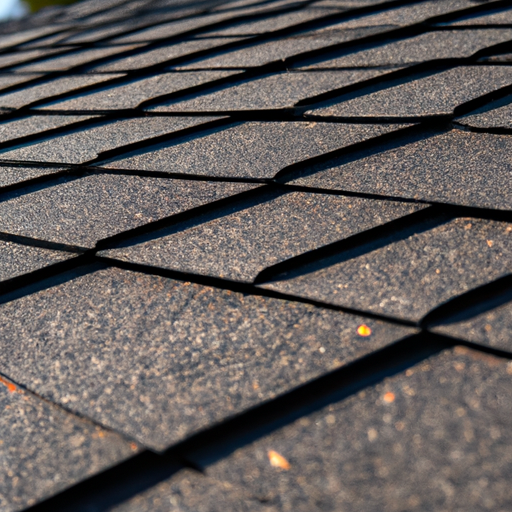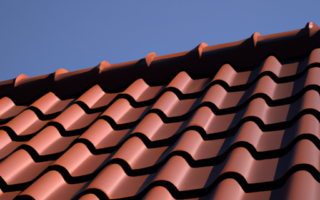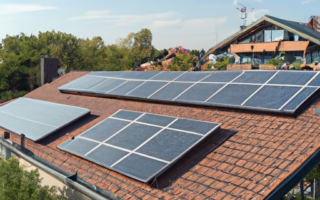Benefits of Using Asphalt Shingles for Roofing
When it comes to roofing materials, asphalt shingles are a popular choice for many homeowners. They offer a range of benefits, as well as a few drawbacks, which should be considered before making a decision. Let’s take a closer look at the pros and cons of using asphalt shingles for roofing.
The Pros of Asphalt Shingles
1. Affordability: Asphalt shingles are one of the most cost-effective roofing options available. They are relatively inexpensive to purchase and install, making them a great choice for homeowners on a budget.
2. Easy Installation: Asphalt shingles are relatively easy to install, which means less labor time and lower installation costs. This makes them a preferred option for both professional roofers and DIY enthusiasts.
3. Durability: Asphalt shingles are known for their strength and durability. They can withstand harsh weather conditions, including heavy rain, wind, and hail. Additionally, they have a long lifespan, with most shingles lasting between 15 to 30 years.
4. Variety of Styles: Asphalt shingles come in a wide range of colors and styles, allowing homeowners to choose a look that complements their home’s architecture and personal taste. Whether you prefer a classic, modern, or rustic appearance, there are asphalt shingles to suit every style.
The Cons of Asphalt Shingles
1. Vulnerability to Extreme Temperatures: While asphalt shingles can handle various weather conditions, they are more susceptible to damage in extreme heat or cold. High temperatures can cause shingles to blister or warp, while freezing temperatures may lead to cracking.
2. Environmental Impact: Asphalt shingles are not the most environmentally-friendly roofing material. They are made from petroleum-based products, which require significant energy consumption during the manufacturing process. Additionally, once they reach the end of their lifespan, they often end up in landfills.
3. Maintenance: While asphalt shingles are generally low-maintenance, they still require occasional upkeep. This includes regular inspections, repairs to damaged or missing shingles, and clearing debris to prevent clogging of gutters and downspouts.
4. Lifespan: While asphalt shingles have a relatively long lifespan, they cannot compete with more durable options such as metal or slate roofs. If longevity is a priority, homeowners may need to consider other materials that offer a longer lifespan.
Ultimately, using asphalt shingles for roofing comes with its fair share of advantages and disadvantages. It’s important for homeowners to carefully consider their needs, budget, and preferences before making a decision. If affordability, easy installation, and a wide variety of styles are your priorities, asphalt shingles might be the right choice for you. However, if you are concerned about extreme temperatures, environmental impact, or long-term durability, it may be worth exploring other roofing materials.
Drawbacks of Using Asphalt Shingles for Roofing
Asphalt shingles are one of the most popular roofing materials in the United States due to their affordability and versatility. They have been widely used for decades, and for good reason. However, like any other product, they come with their drawbacks. In this article, we will explore the pros and cons of using asphalt shingles for roofing.
Pros of Asphalt Shingles
1. Affordable: One of the main advantages of asphalt shingles is their cost-effectiveness. They are relatively inexpensive compared to other roofing materials, making them a popular choice for budget-conscious homeowners.
2. Easy Installation: Asphalt shingles are lightweight and easy to install, making the roofing process quick and efficient. This can help reduce labor costs and save time on the overall installation process.
3. Wide Variety: Asphalt shingles come in a wide range of colors, styles, and designs, allowing homeowners to choose the look that best complements their home’s architectural style. This versatility makes them a versatile option for various types of houses.
4. Durability: High-quality asphalt shingles are known for their durability and ability to withstand various weather conditions, including strong winds and heavy rainfall. They can also provide good protection against fire, making them a safe roofing option.
5. Easy Repairs: In the event that a shingle gets damaged, repairing or replacing it is relatively easy and cost-effective. This makes maintenance and repairs hassle-free and more affordable compared to other roofing materials.
Cons of Asphalt Shingles
1. Limited Lifespan: While asphalt shingles are known for their durability, they typically have a shorter lifespan compared to other roofing materials such as metal or tile. The average lifespan of asphalt shingles is around 20-30 years, depending on various factors such as climate and maintenance.
2. Susceptible to Weather Damage: Despite their durability, asphalt shingles can be prone to damage from severe weather conditions. Hailstorms, heavy snow, and extreme heat can cause cracking, blistering, and curling of the shingles, compromising their effectiveness.
3. Environmental Impact: Asphalt shingles are not the most environmentally friendly roofing option. They are made from petroleum-based materials and are non-biodegradable, contributing to landfill waste. However, some manufacturers now offer recycled asphalt shingles, which provide a more sustainable alternative.
4. Limited Insulation: Asphalt shingles, especially the standard three-tab variety, offer limited insulation capabilities compared to other roofing materials such as metal or slate. This can result in increased energy consumption and higher heating or cooling costs.
5. Aesthetics: While asphalt shingles offer a wide variety of designs, some homeowners may prefer the look of more premium roofing materials like slate or clay tiles. Therefore, if aesthetics are a significant factor in your roofing decision, asphalt shingles may not be the best choice for you.
In conclusion, asphalt shingles have their pros and cons when it comes to roofing. They offer affordability, ease of installation, durability, and a wide variety of options. However, they also have a limited lifespan, can be susceptible to weather damage, and may not be the most environmentally friendly option. Consider these factors carefully when deciding on the best roofing material for your home.



